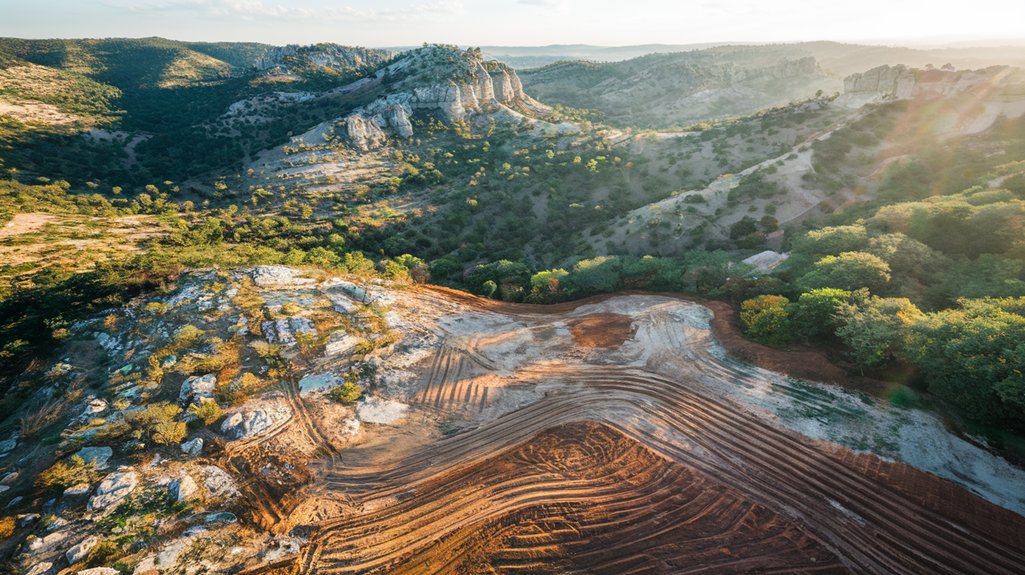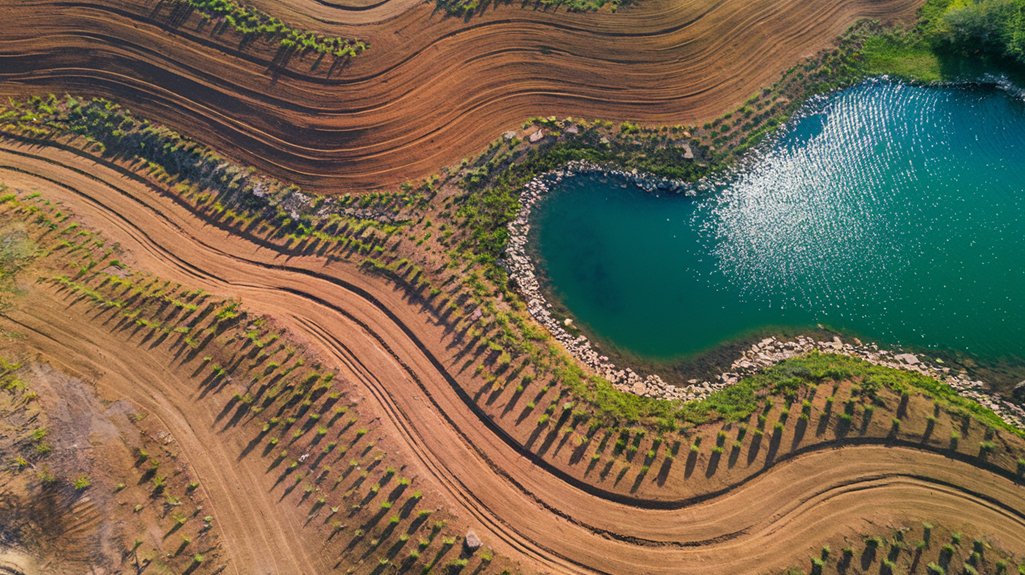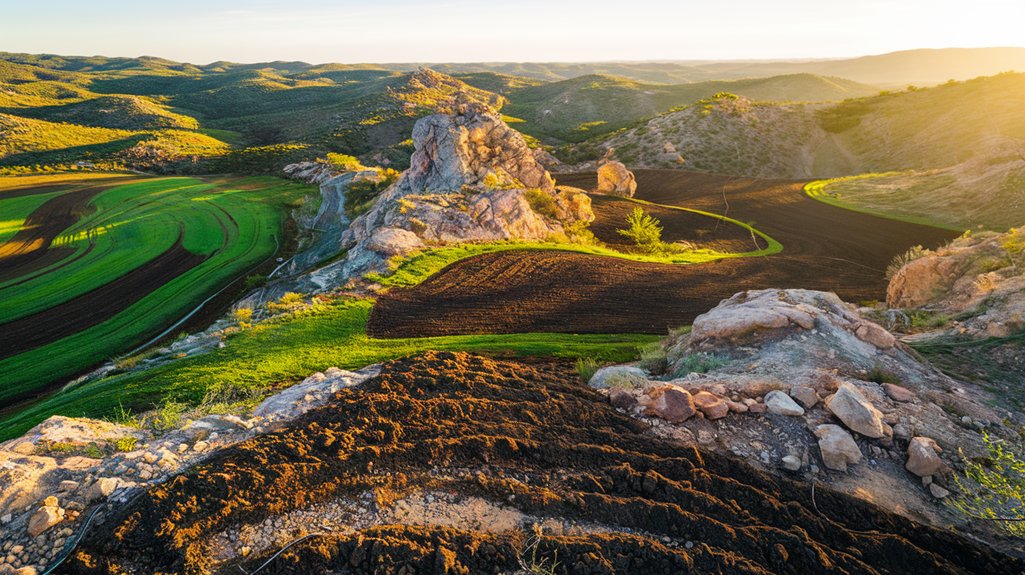Why Proper Site Preparation Is Critical in the Texas Hill Country
When planning construction or landscaping, site preparation in the Texas Hill Country is a vital first step. The region’s unique geology—spanning limestone bedrock, steep grades, and varied soils—requires strategic planning and execution. Ignoring this crucial phase can lead to drainage failures, erosion, or even structural instability. Whether you’re building in San Antonio, Canyon Lake, or Austin, Texas, here’s why proper site prep matters and how to get it right.
Key Takeaways
- Understanding local geology and topography guides effective foundation and drainage plans.
- Soil testing ensures the stability and compatibility of the land for construction.
- Drainage solutions protect property integrity by managing water flow and preventing erosion.
- Environmental awareness preserves ecosystems and aligns with sustainable practices.
- Adhering to regional regulations helps avoid costly legal or structural issues.
Understanding the Unique Terrain of the Texas Hill Country

The Texas Hill Country terrain features limestone ridges, rolling slopes, and shallow topsoil. This complexity affects how water drains and how stable your foundation will be. Proper grading, clearing, and planning ensure your site can support safe and lasting construction.
Assessing Soil Composition and Stability

Soil type dictates how well a structure will hold up over time. Conducting professional soil testing is critical to measure load-bearing capacity, permeability, and composition. This step identifies risks and helps plan for proper drainage and foundational support tailored to Hill Country land.
Evaluating Drainage and Water Management

Water management is crucial in areas with rocky sublayers and slope variations. Proper drainage prevents erosion and structural damage. Options include grading, French drains, and swales—proven techniques for areas like those outlined by the USDA NRCS.
Identifying Environmental Considerations
Site prep also involves assessing environmental impact. Native plants support biodiversity, stabilize soil, and require less irrigation. Minimizing land disturbance and preserving trees ensures a balanced ecosystem—something deeply valued across Central Texas communities.
Navigating Local Regulations and Permits
Permitting is a critical part of your project. Local municipalities such as Austin’s Development Services enforce codes that affect grading, erosion control, and structure types. Partnering with experienced professionals helps ensure compliance, saving time and preventing delays.
Planning for Extreme Weather Conditions
From flash floods to drought, Hill Country weather demands resilience. Strategies include installing reinforced retaining walls, elevating build areas, and using permeable materials to help control stormwater runoff. Durable materials and smart landscaping boost long-term performance under Texas conditions.
Implementing Sustainable Practices in Site Preparation
- Use native and drought-tolerant plants for erosion control and water efficiency.
- Install rainwater harvesting systems where possible.
- Incorporate organic soil amendments to improve structure and fertility.
- Design for minimal grading to preserve the natural slope and flow of water.
Frequently Asked Questions
What tools are essential for site preparation in the Texas Hill Country?
You’ll need excavation tools (backhoes, compactors), soil testing kits, and proper surveying equipment to map terrain and slope.
When is the best time of year for site prep?
Fall and early spring are ideal due to manageable temperatures and ground moisture, allowing for smoother grading and vegetation control.
Are there experts available locally?
Yes—working with experienced local contractors or environmental consultants ensures proper assessment and compliance with Texas codes and natural conditions.
What mistakes should I avoid?
Failing to account for drainage or ignoring soil conditions can cause costly structural problems. Always begin with testing and grading.
Does site prep affect future resale value?
Absolutely. Proper preparation prevents shifting foundations and landscape damage, increasing long-term value and buyer confidence in competitive markets like San Antonio or Austin.
Proper site preparation in the Texas Hill Country lays the foundation for long-term project success. From understanding the land’s unique geology to implementing responsible drainage and sustainability strategies, every step contributes to safety, compliance, and value. At Valor Concrete, we specialize in site prep that supports beautiful, enduring concrete construction across San Antonio, Canyon Lake, Austin, and surrounding regions.

